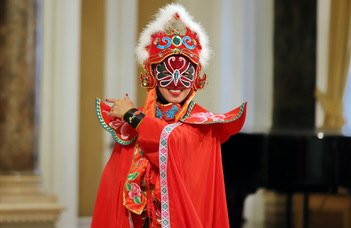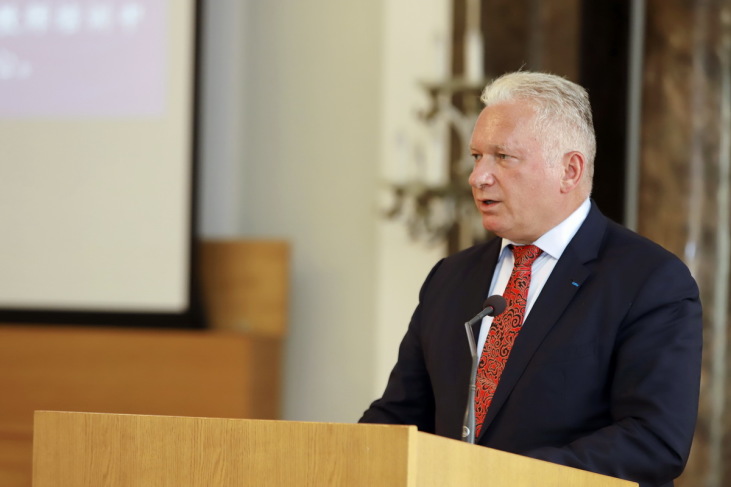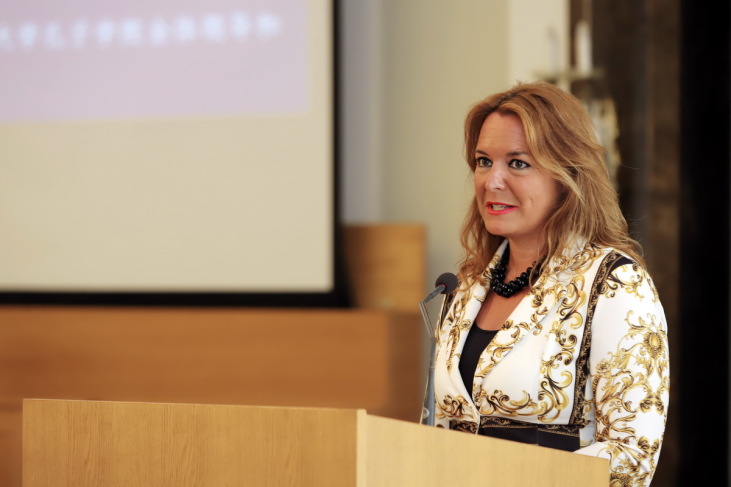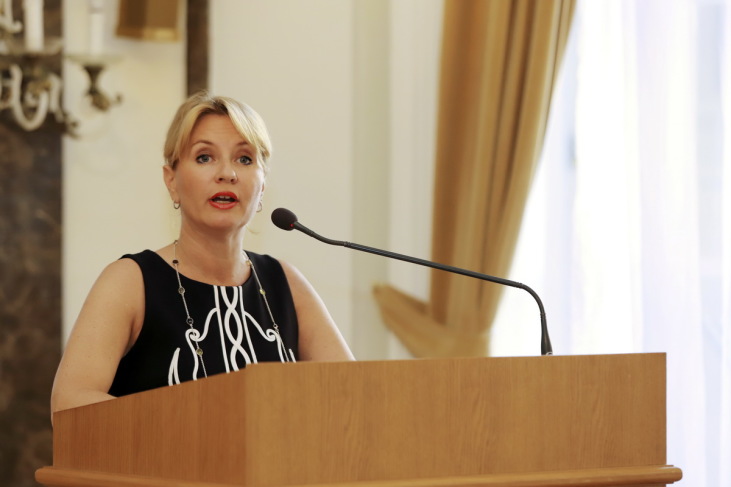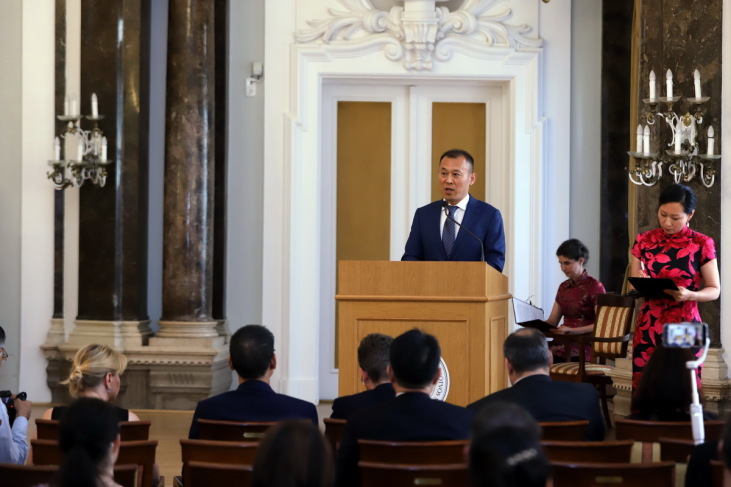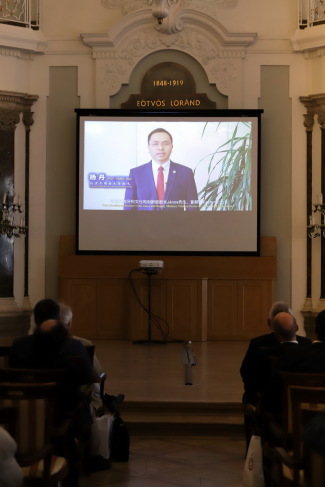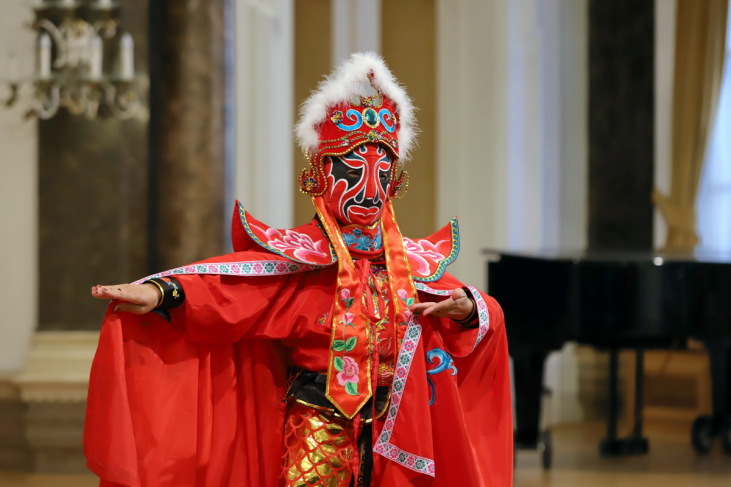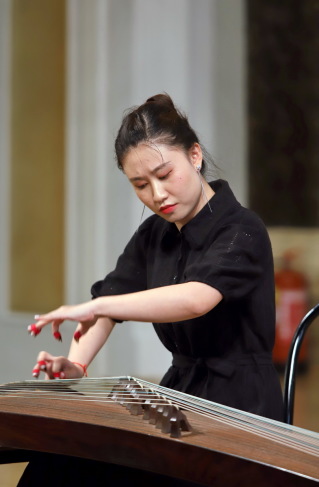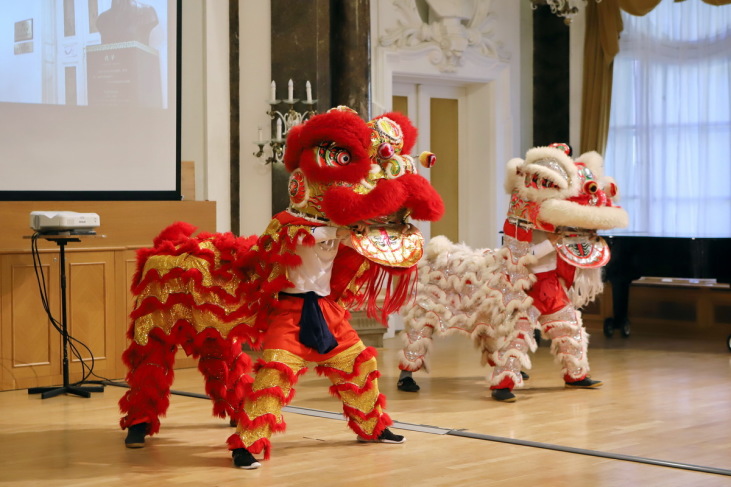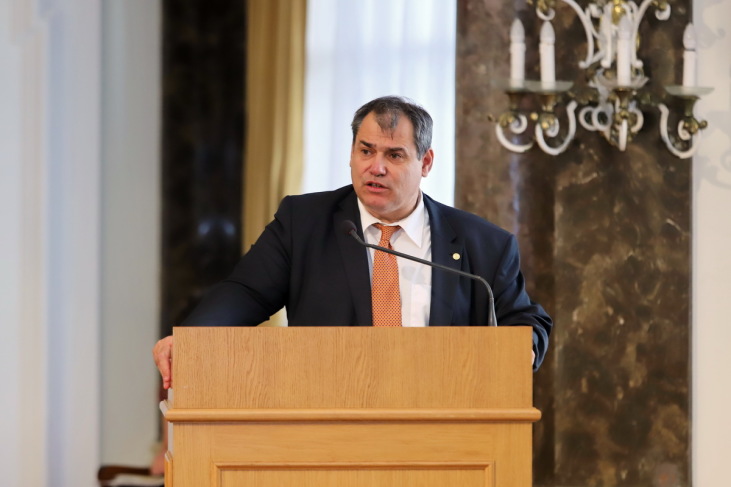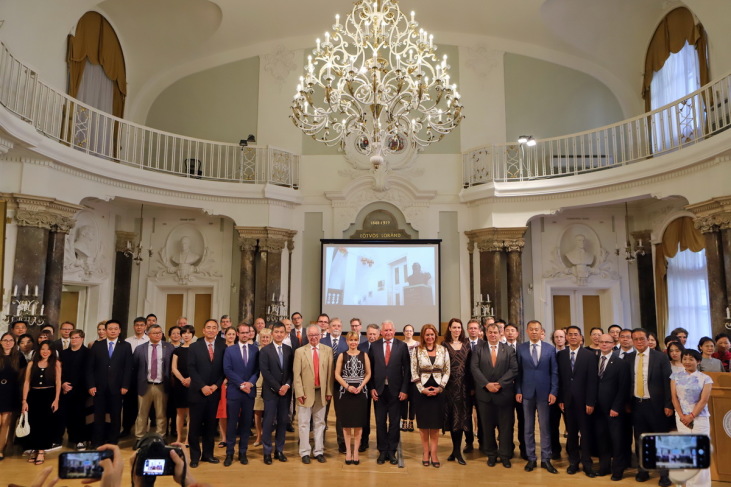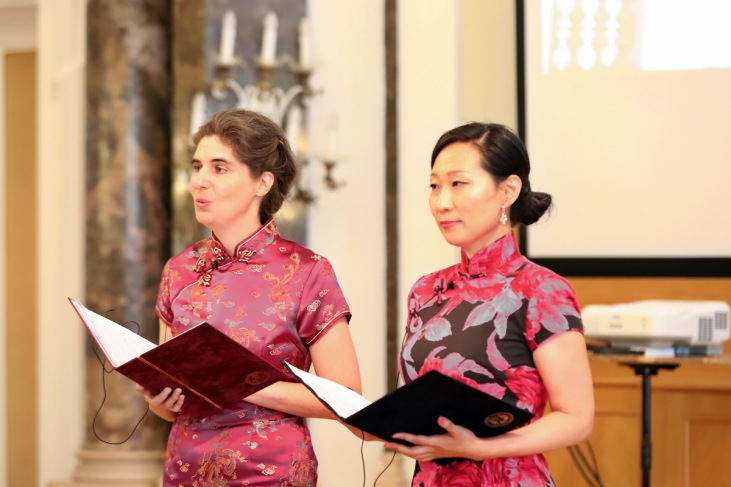The ELTE Confucius Institute is 15 years old
Hungary’s first Confucius Institute was launched at Eötvös Loránd University in December 2006, with the aim of presenting and popularising the Chinese language and culture in the country. Thanks to its persistent work in the past 15 years, the Institute has not only gained a lot of experience but has also received several recognitions and has earned itself a prominent position among the Confucius Institutes around the world. Over the years, it has continuously expanded its scope of activities. In some fields, it has become a regional centre in Eastern and Central Europe and still contributes to the development of partnership relations between China and Hungary to a considerable extent.
On the occasion of the jubilee, a celebration was held in the Aula Magna on 21 June 2022. The event was attended by state leaders, diplomats, and Chinese businessmen working in Hungary, as well as the leaders of the University, the current and former staff members, and patrons of the Institute. The welcome speeches were followed by a breathtaking gala show.

In his speech, László Borhy congratulated the Institute on the results achieved so far. He said that the ELTE Confucius Institute contributes a great deal to expanding the knowledge of civil society, as well as to broadening the University’s international relations and the promotion of cooperation between the two countries, with its diverse activities of cultural mediation worthy of recognition. Responding to the latter, Eszter Vitályos, Deputy Minister of Culture and Innovation, quoted Chinese and Hungarian authors to emphasise the fact that the similar feelings and thoughts of the two nations evoke mutual respect, which lays the foundation of fruitful relations. Balázs Hankó, Deputy State Secretary for Higher Education, was also present at the ceremony on behalf of the Ministry.
Orsolya Pacsay-Tomassich, State Secretary for the Hungarian Diplomatic Academy and the Stipendium Hungaricum Programme, emphasised the role of the Institute in language teaching, scientific research, and in the field of culture. “These activities are of enormous importance in the development of interstate relations, and recently China has become the largest investor in Hungary”, she said. This was confirmed by Liu Bo, Chargé d’Affaires ad interim at the Embassy of the People’s Republic of China in Hungary. He added that China’s economic connections with Hungary are the strongest in the region and the number of Chinese investments is likely to double in the future.

The letter by Qi Dayu, Ambassador Extraordinary and Plenipotentiary of the People’s Republic of China to Hungary, was read out by Chen Kun, Educational Advisor at the Embassy. The ambassador paid tribute to the institute at ELTE for its self-sacrificing work to nurture friendship between the two nations in the past 15 years. “The relationship between China and Hungary is excellent, China’s ‘One Belt, One Road’ project and Hungary’s ‘Eastern Opening’ policy correspond to each other at the highest levels,” he wrote.
Eötvös Loránd University has been cooperating with the Beijing University of Foreign Languages for more than 30 years. In 2015, the establishment of an ELTE centre in the partner institution in Beijing represented a big step forward concerning ELTE’s visibility in China. In a video message, Yang Dan, Rector at the Beijing University of Foreign Languages, greeted those who gathered in the Aula Magna and expressed his appreciation.
Imre Hamar, Vice-Rector for International Affairs at ELTE, was the last speaker to take the stage. He has been leading the ELTE Confucius Institute with great commitment and enthusiasm since its foundation in 2006. As the ELTE Confucius Institute was one of the first institutions in the world to promote Chinese culture, the professor recalled that
in lack of a model to follow, it was great excitement and responsibility to launch the institution,
and later to operate and develop it. “The University provided solid foundations for this work since ELTE has always been the centre for sinology in Hungary”, he said. The Institute repays the support, among other things, with its third mission activities, teaching more and more young people to speak Chinese and know China not only in higher education but also in the secondary schools of the country, while also serving Chinese teacher training in the region. “As a sinologist, I am in the fortunate position that, thanks to the Confucius Institute, I can be – in a manner of speaking – in China every day. Due to the tasks and contacts at the institute, I can also learn more about the Chinese way of thinking and problem-solving methods. Over the years, I have managed to adapt to the cultural differences and comply with them during the cooperation”, he added.

In the remaining part of the gala, the attendees could get a taste of Chinese culture in the framework of a superbly complied, high-quality programme. First, the Chinese folk song Jasmine Flower was performed by the choir of the Institute of Arts Communication and Music at the ELTE Faculty of Humanities conducted by Ákos Erdős. Afterwards, the audience could alternately laugh and be alarmed at the fierce lion dance performed by the Hungarian Chan Wu Association. The celebratory dance with a tradition going back to more than a thousand years was accompanied by two lions in the Aula Magna, reflecting the grandeur of the occasion. After the performance aimed at warding off evil spirits and attracting luck and wealth, Ding Huijin, a guzheng artist who had graduated from Zhejiang University Conservatory, went on stage. The guzheng is a wooden zither-type instrument dating back 2,500 years. In the impressive performance, the dramatic and lyrical work Sleeve Dreams by Liu Le was played.

Tang Qi from the city Chongqing provided many surprises giving a taste of Szechuan opera. There are over 300 types of opera in China, and the peculiarity of the nearly 300-year-old Szechuan opera from the Late Ming Dynasty is that the performer’s mask is exchanged in a split second before the viewers’ eyes and disappears in the end. Rector László Borhy and Cecília Szilas, Hungary’s former ambassador to China, were involved in the magic, while the audience went from one wonder to another. The programme ended with a Kung Fu demonstration by the Sákánykard (“Dragonsword”) Association. Accompanied by drumming, the martial artists presented their skills under the guidance of Kristóf Kövér.
For the anniversary, the Institute also published a book entitled Az ELTE Konfuciusz Intézet története képekben [The History of the ELTE Confucius Institute in Pictures], which is decorated with illustrations by the participants of the art courses organised at the Institute.
ELTE Confucius Institute gala programme
ELTE Confucius Institute gala programme
László Borhy, Rector of ELTE
László Borhy, Rector of ELTE
0
/
0











0
/
0

